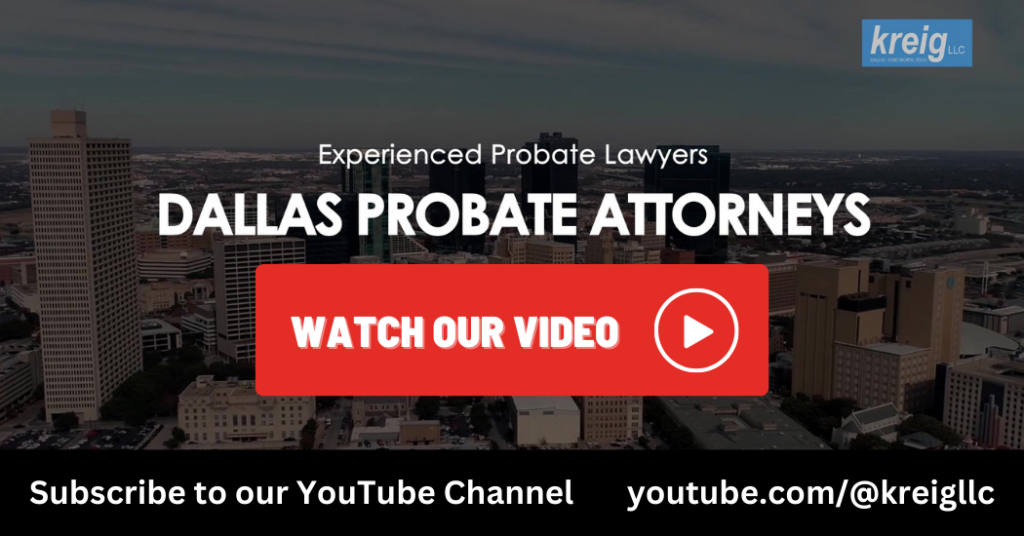In the state of Texas, contesting a will often hinges on a pivotal and contentious issue: the testamentary capacity of the individual responsible for creating the will. To mount a successful challenge to a will based on capacity, it is essential to comprehend the legal prerequisites and compile compelling evidence, as this situation underscores. However, is it possible to prove a lack of testamentary capacity when there is no direct evidence? The Tieken v. Midwestern State University, 912 S.W.2d 878 (Tex. App. — Fort Worth 1995, no writ) helps to answer this question.
Facts & Procedural History
The decedent executed a will that left her estate to her husband, and in the event that he passed, to a university foundation. After her husband died and her health sharply declined, she made a new will favoring one of her friend’s, an insurance adjuster, which differed drastically from her prior will.
Around the time she made the new will, the decedent exhibited severe mental confusion and inability to perform daily tasks. This led to the administratrix of her estate to file suit against the insurance adjuster over the will, alleging that the decedent was lacked the testamentary and mental capacity to write a new will, and that he exercised undue influence on her.
What is Testamentary Capacity?
Testamentary capacity refers to a person’s legal and mental ability to make or alter a valid will. To have capacity, Texas law requires that the testator:
- Understand the act of making a will and its effects
- Comprehend the nature and extent of their property
- Recognize the natural objects of their bounty
The burden of proving incapacity falls on will contestants. If there is reasonable evidence to prove that a testator lacked capacity, the will can be invalidated. However, in cases where there is not enough evidence to prove a decedent’s testamentary capacity, the jury can look at the circumstances and totality of the evidence to determine if a testator lacked testamentary capacity.
Assessing Testamentary Capacity
Texas courts determine capacity by looking at the testator’s mental state when the will was signed. Direct evidence is not required. Circumstantial evidence can establish incapacity, including:
- Drastic deviations from previous wills
- Confused or erratic behavior around will execution
- Recent mental decline or illness
- Suspicious circumstances surrounding will making
Courts evaluate factors like memory, orientation, cognition, and comprehension of the will and assets.
If no direct evidence exists, Texas juries can still infer lack of testamentary capacity based on the totality of circumstances. Factors include:
- Declining physical and mental health
- Confused conversations or conduct
- Inability to recognize acquaintances
- Drastic deviations from prior wills
- Suspicious circumstances around will execution
While an appellate court will not reweigh evidence, it will affirm a capacity finding with even minimal evidentiary support.
Steps for Contesting a Will Based on Incapacity
If contesting a will for lack of testamentary capacity, key steps include:
- Gathering medical records or accounts of mental decline
- Interviewing witnesses to odd behavior by the testator
- Presenting evidence of prior inconsistent wills
- Highlighting suspicious circumstances surrounding will execution
- Working with an experienced probate attorney
With persuasive indirect evidence, Texas courts can deem a testator lacked requisite capacity to execute a valid will.
JNOV Motions
In Texas litigation, parties can file a motion for judgment notwithstanding the verdict (JNOV) to challenge a jury’s verdict they believe is unsupported. A JNOV is a judgment by the trial judge after a jury has issued a verdict, setting aside the jury’s verdict and entering a judgment in favor of the losing party without a new trial. As such, A JNOV motion faces an uphill battle given the light evidentiary burden.
In this case, the losing party filed a JNOV motion asserting no evidence supported the jury’s finding of incapacity. However, the court affirmed the verdict based on the circumstantial evidence presented at trial.
The Takeaway
Contestants bear the responsibility of proving incapacity, which can be demonstrated through circumstantial evidence, such as erratic behavior or drastic deviations from previous wills. Even when direct evidence is lacking, Texas courts can infer lack of testamentary capacity based on the totality of circumstances.
Contesting a will for incapacity necessitates thorough preparation, including gathering medical records and highlighting suspicious circumstances. In the end, the court’s decision may be challenging to overturn, even with a JNOV motion, due to the weight of circumstantial evidence.
Our Dallas Probate Attorneys provide a full range of probate services to our clients, including helping with probate litigation. Probate is what we do. Affordable rates, fixed fees, and payment plans are available. We provide step-by-step instructions, guidance, checklists, and more for completing the probate process.We have years of combined experience we can use to support and guide you with probate and estate matters. Call us today for a FREE attorney consultation.
Disclaimer: The content of this website is for informational purposes only and should not be construed as legal advice. The information presented may not apply to your situation and should not be acted upon without consulting a qualified probate attorney. We encourage you to seek the advice of a competent attorney with any legal questions you may have.
Don't miss out, get a copy today!












